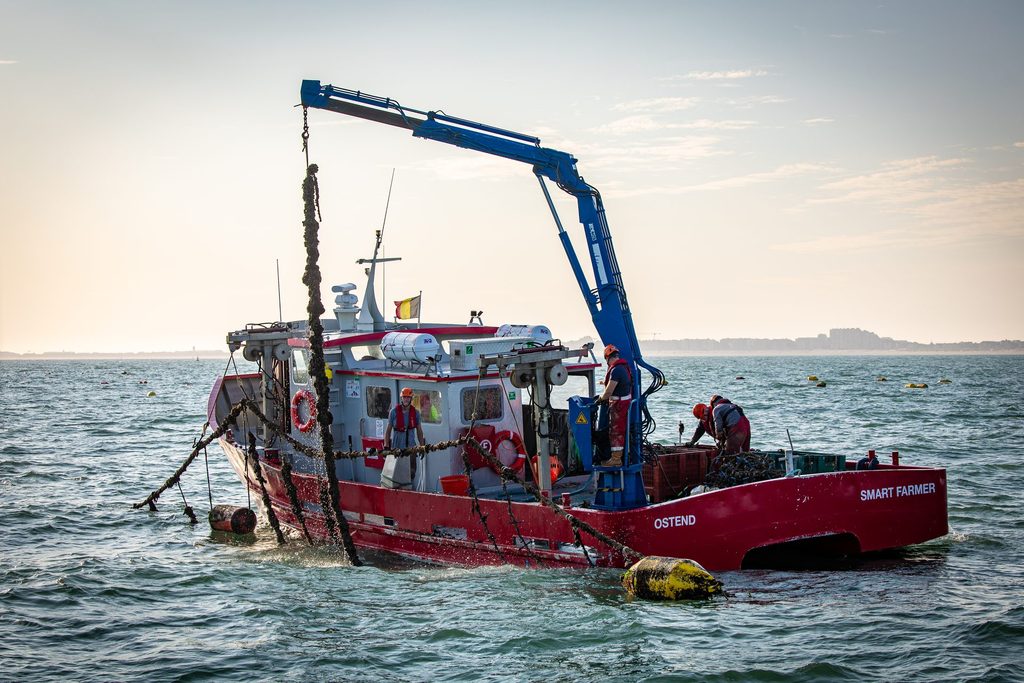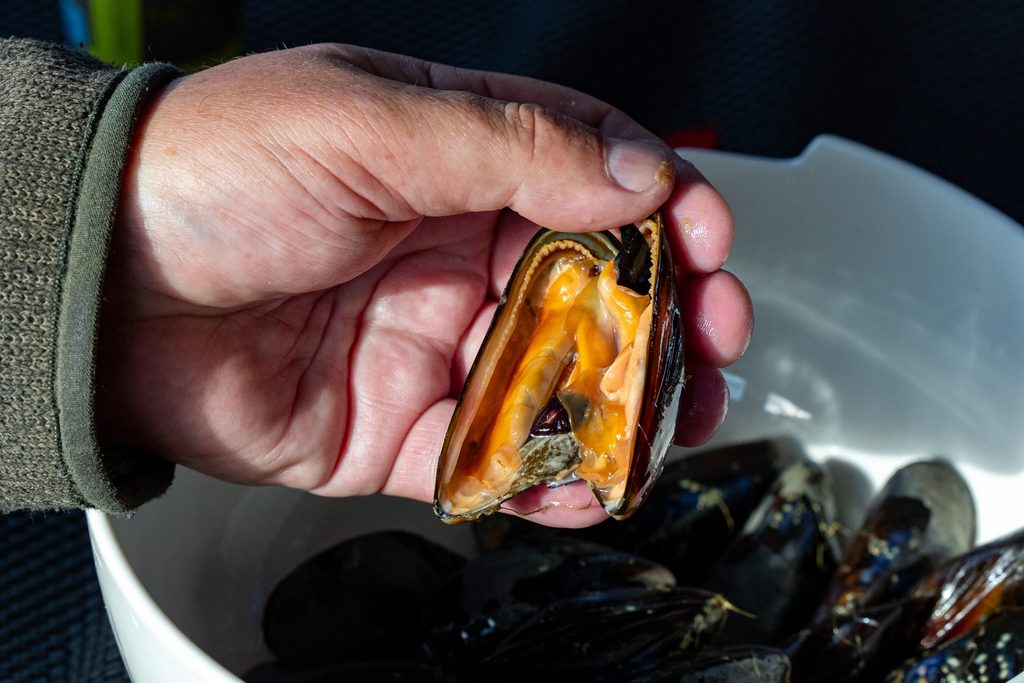Eighteen months after the start of the construction of the controversial commercial sea farm just five kilometres off the Belgian coast, the Colruyt Group has announced the first harvest of its very own Belgian mussels.
"Finally the country of mussel eaters has its own mussels," North Sea Minister Vincent Van Quickenborne told reporters.
Belgians are one of the largest mussel consumers in Europe with an average per capita consumption of 2.2 kilos of mussels a year. Yet, until recently, mussel production was non-existent in Belgium, even though mussel seed is naturally present in the Belgian North Sea.
Belgium imports 70% of its seafood, and the Federal Government is seeking to make use of the potential for sustainable food production on the coast, with the area said to be ideal for mussel cultivation. In the next few months, the Colruyt Group will harvest between 10 and 15 tons of mussels cultivated using longline or “suspended culture” technology.
Extra mussel lines were recently installed to enlarge the number of mussels available for next year. The group is planning to scale up the sea farm, of which currently only a quarter of the available area is in use.

Credit: Belga / Kurt Desplenter
In 2020, Colruyt was granted the necessary permits to cultivate mussels in the Westdiep area and in due course also oysters and seaweed, after the Marine Spatial Plan came into force and enabled commercial activities in the North Sea.
Eighteen months ago, the group started the construction of an innovative sea farm, the first in the Belgian North Sea.
The city of Nieuport had expressed opposition to the project since October 2020, fearing that, given its location, it would hamper the circulation of fishing vessels as well as pleasure boats. It thus turned to the Council of State to contest, primarily, the environmental permit issued to Colruyt by the North Sea Ministry. So did local fishers and three sailing clubs.
Related News
- Flemish town hopeful for sea farm solution: 'Talks continue'
- Bid to block Colruyt's commercial sea farm project fails
Nieuport Mayor Geert Vanden Broucke described the location of the project, two kilometres from the port's channel, as a “disaster” for fishing and tourism in his city.
However, this week, Belgium’s Council of State on Thursday threw out three petitions lodged by sports associations, environmental organisations and the city of Nieuport against a commercial sea farm Colruyt is developing along the coast.
Van Quickenborne added that the government is planning to greatly expand its aquaculture production. "Think of the potential of seaweed farms. This allows you to grow 26 tons of fodder per hectare, while you can only get 5 tons on land. We are also fully investigating the possibility of oyster farms in the North Sea. The North Sea will only become more important in the coming years."
The Belgian mussels will be for sale in Cru’s four markets while stocks last.

